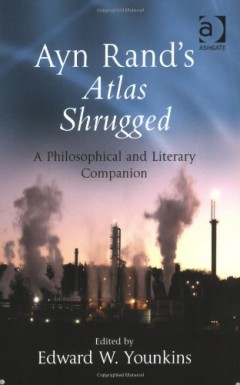Koch Research Fellows Ed Younkins, Jomana Krupinski, and Kaitlyn Pytlak have shared with me the results of a survey they conducted of 250 Business and Economics professors and 250 English and Literature professors. They asked these two groups of professors to rank the best novels and plays about business. The top 25 from each group are listed separately in the table below. What makes the results particularly interesting is that 15 titles appear on both lists, indicating a surprising level of agreement between the two groups of professors. But the two groups did not rank the 15 the same and each selected 10 other books the other group did not, so there was significant disagreement as well.
Henry Hazlitt
NEWS | The 5 Best Free Libertarian Novels; Art, Culture, and Liberty
in News, Prose, Science Fiction
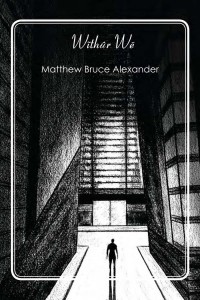
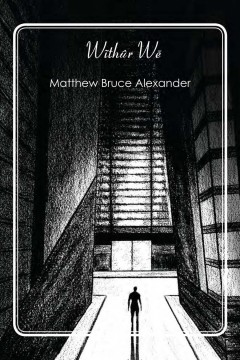
Over at Ars Gratia Libertatis (Art for the Sake of Liberty), ADUCKNAMEDJOE has a list of what he considers to be the five best free libertarian novels. The first novel of our very own Matthew Alexander made the list.
- Alongside Night by J. Neil Schulman
- Wĭthûr Wē by Matthew Alexander (Help out the author and Prometheus Unbound by buying a copy.)
- Time Will Run Back by Henry Hazlitt (Help out the Mises Institute by buying a physical or digital copy.)
- And Then There Were None by Eric Frank Russel
- A Lodging of Wayfaring Men by Paul A. Rosenberg
ADUCKNAMEDJOE also throws in as a bonus a free libertarian short story, “Lippidleggin’“ by F. Paul Wilson, about circumventing food prohibition laws. Head on over to Ars Gratia Libertatis to read his descriptions of these stories.
What do you think of the items on the list? Is anything missing?
Also via Ars Gratia Libertatis, a couple of videos on the importance of art and culture for liberty:
Help Promote Prometheus Unbound by Sharing this Post
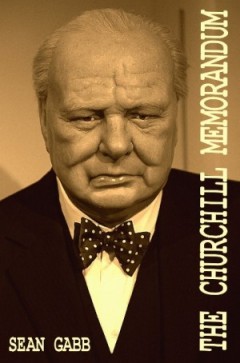
I recently read The Churchill Memorandum, by English libertarian Sean Gabb. I devoured most of it on a transatlantic flight, and finished the last bit on terra firma. I tend to like thrillers (some favorite authors include Nelson DeMille and, of late, Cherie Priest, author of Bloodshot); alternate history (e.g., Harry Turtledove, Brad Linaweaver’s Moon of Ice, L. Neil Smith’s The Probability Broach); and books with libertarian themes or influences (L. Neil Smith, Ayn Rand, Henry Hazlitt, Brad Linaweaver, Victor Koman, J. Neil Schulman). So it’s no surprise I enjoyed The Churchill Memorandum, which is very well written and which combines all three features (full disclosure: Gabb is a friend).
The novel is set in 1959, in an alternate history in which Hitler died in a car accident in 1939, thus averting WWII and changing the course of history. Gabb’s libertarian influences — he’s the head of the UK Libertarian Alliance — as well as his deep historical knowledge, are evident throughout the book. The novel depicts amazing technological progress — some of it rivaling or exceeding 2011 levels — in 1959, since WWII did not occur to sap away the economic strength and entrepreneurial innovations of tens of millions of individuals who would otherwise have been eviscerated in state war. So in 1959 there are magnetic bullet trains, home energy generators, and many other seemingly fantastic innovations.
The story follows the adventures of one Anthony Markham, a Churchill historian who, on a trip to the now-fascist police-state and isolationist America to research the Churchill archives at Harvard, stumbles across an explosive document that purports to document secret pacts that changed the course of American and world history. This leads to an intriguing geopolitical thriller informed by the author’s libertarian views. It is told in first person point of view (POV), my personal favorite for thrillers (and other novels) since it forces the narrator to show not tell, and not to omnisciently cheat and reveal details the protagonist would not know. Gabb’s ambivalent and somewhat bipolar English attitude towards America — at once a great power and friend of England, and a schizophrenic and dangerous destroyer of the ancient European order and institutions — is present throughout; and as a skeptic of the American mythos myself, I really enjoyed this foreign perspective. (Gabb recently presented a talk on “The Case Against the American War of Independence.”)
Help Promote Prometheus Unbound by Sharing this Post
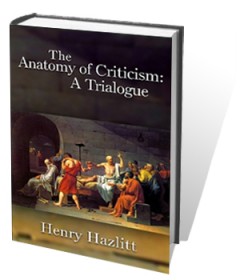
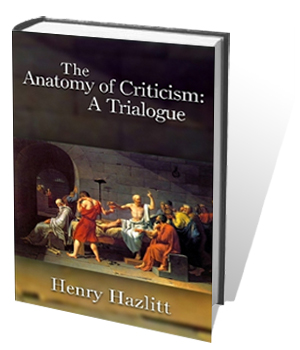 Remembered mostly for his contributions to economics, including his pithy and still-timely classic Economics in One Lesson (1946), Henry Hazlitt was a man who wore many hats. He was a public intellectual and the author or editor of some twenty-eight books, one of which was a novel, The Great Idea (1961) — published in Britain and later republished in the United States as Time Will Run Back (1966) — and another of which, The Anatomy of Criticism (1933), was a trialogue on literary criticism. (Hazlitt’s book came out twenty-four years before Northrop Frye published a book of criticism under the same title.) Great-great nephew to British essayist William Hazlitt, the boy Henry wanted to become like the eminent pragmatist and philosopher-psychologist William James, who was known for his charming turns of phrase and literary sparkle. Relative poverty would prevent Hazlitt’s becoming the next James. But the man Hazlitt forged his own path, one that established his reputation as an influential man of letters.
Remembered mostly for his contributions to economics, including his pithy and still-timely classic Economics in One Lesson (1946), Henry Hazlitt was a man who wore many hats. He was a public intellectual and the author or editor of some twenty-eight books, one of which was a novel, The Great Idea (1961) — published in Britain and later republished in the United States as Time Will Run Back (1966) — and another of which, The Anatomy of Criticism (1933), was a trialogue on literary criticism. (Hazlitt’s book came out twenty-four years before Northrop Frye published a book of criticism under the same title.) Great-great nephew to British essayist William Hazlitt, the boy Henry wanted to become like the eminent pragmatist and philosopher-psychologist William James, who was known for his charming turns of phrase and literary sparkle. Relative poverty would prevent Hazlitt’s becoming the next James. But the man Hazlitt forged his own path, one that established his reputation as an influential man of letters.
In part because of his longstanding support for free market economics, scholars of literature have overlooked Hazlitt’s literary criticism; and Austrian economists — perhaps for lack of interest, perhaps for other reasons — have done little to restore Hazlitt’s place among the pantheon of twentieth-century literary critics. Yet Hazlitt deserves that honor. He may not have been a Viktor Shklovsky, Roman Jakobson, Cleanth Brooks, William K. Wimsatt, John Crowe Ransom, Allen Tate, Lionel Trilling, Dwight Macdonald, or Kenneth Burke, but Hazlitt’s criticism is valuable in negative terms: he offers a corrective to much that is wrong with literary criticism, both then and now. His positive contributions to literary criticism seem slight when compared to those of the figures named in the previous sentence. But Hazlitt is striking in his ability to anticipate problems with contemporary criticism, especially the tendency to judge authors by their identity. Hazlitt’s contributions to literary criticism were not many, but they were entertaining and erudite, rivaling as they did the literary fashions of the day and packing as much material into a few works as other critics packed into their entire oeuvres.
Hazlitt became literary editor of The Nation — a position once held by Paul Elmer More — in 1930. At that time, formalism was the dominant school of literary analysis in Russia, and the New Criticism was in its nascent stages in America. The former scrutinized supposedly invariant linguistic patterns or grammars of poetry and sought to divorce authorial biography from textual criticism. Formalism also sought to break down literature into its constituent elements: form, irony, meter, voice, plot, point of view, and so forth. Proponents of Russian formalism included Shklovsky, Boris Eikhenbaum, Yuri Tynyanov, Boris Tomashevsky, Vladimir Propp, and Roman Jakobson. Each of these men produced idiosyncratic works that have in common a certain attention to the manifest structure of language. Each considered syntactical systems as imperative to the organization and meaning of artistic works. In 1930, the same year in which Hazlitt assumed his position at The Nation, Shklovsky renounced formalism, which had come under assault by socialist and communist ideologues who insisted that criticism tow party lines and tolerate no dissent. It would be another three decades at least before Russian formalism received extensive critical treatment in America — except among small Slavicist academic circles — but the commonalities shared by formalism and the New Criticism reveal something (what, exactly, is debatable) about the global trajectory of literary criticism during a topsy-turvy era.
Help Promote Prometheus Unbound by Sharing this Post
Literature and the Economics of Liberty: Jeffrey Tucker Interviews Allen Mendenhall
in “Literary” Fiction, Featured Posts, Interviews, News, Prose
Help Promote Prometheus Unbound by Sharing this Post
